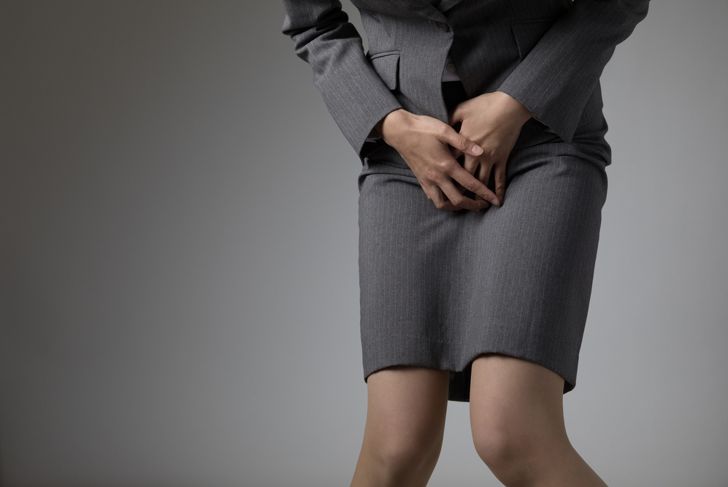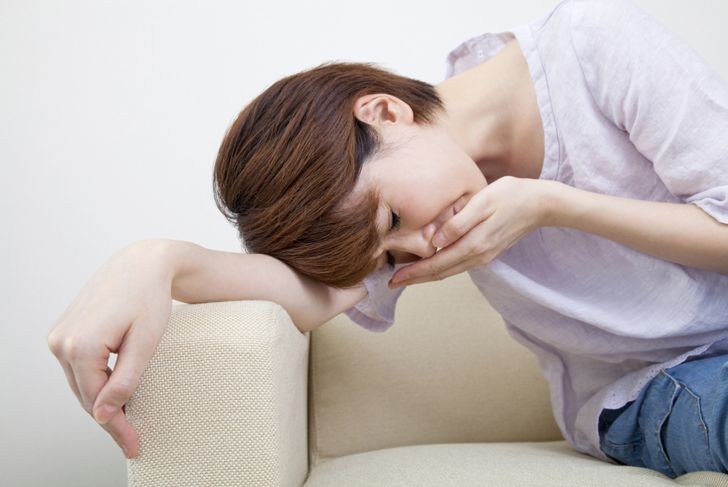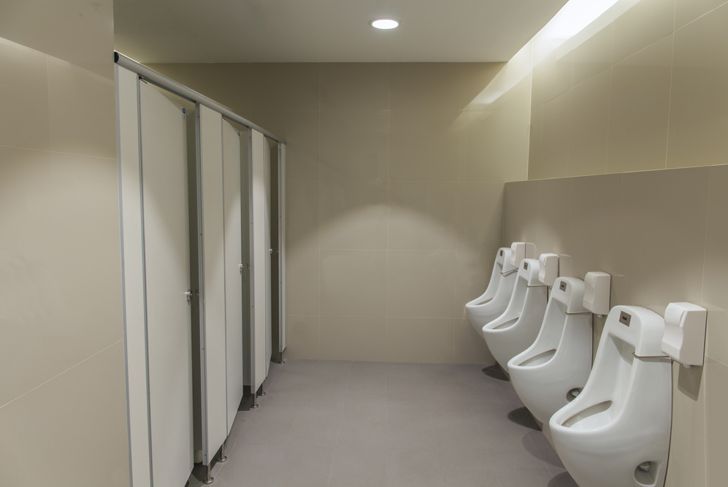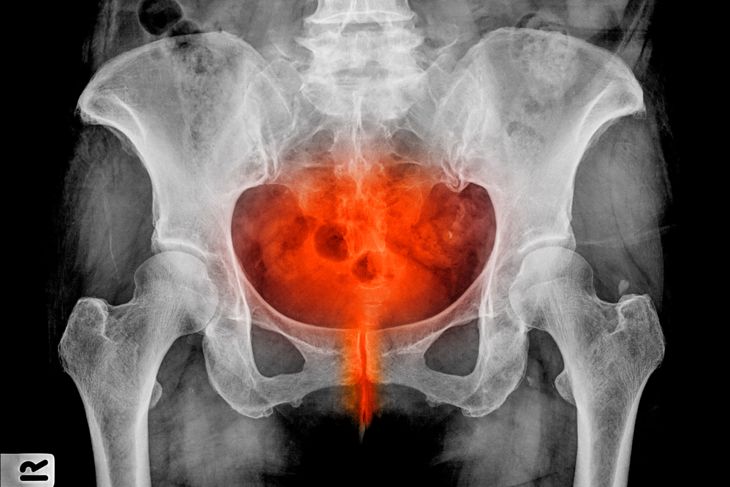Kidney stones can form when calcium, uric acid, oxalate, or cystine builds up in excessive quantities in the body. The most common type of kidney stone is made of calcium oxalate. Cystine stones are rare and affect people who have a genetic disorder that causes cystine to leak from the kidneys into the urine. Another type of kidney stone, called a struvite stone, is associated with urinary tract infections and is more common in women. Most kidney stones are as small as a grain of sand, so they pass in the urine without causing any symptoms. If the stones grow larger, however, reaching the size of a pebble or even a golf ball, they cannot pass through the urinary tract and cause pain and other symptoms.
Sharp Pain
Pain is the most widely experienced symptom of kidney stones. The medical term for this type of pain is renal colic. Where in the body the stone is lodged determines where the pain is felt most strongly. It is common to feel pains in one or both of the sides of the lower back, but if the stone is lower down, pain can intensify in the groin. Sometimes the pain starts in the back and moves around to the stomach, causing severe spasms or continuous throbbing.
Painful Urination
When a kidney stone becomes lodged in the urinary tract, urination becomes extremely painful. The kidney stone is blocking the flow of urine through the ureter or moving around against the sensitive lining of the kidney or other areas of the urinary tract. Pain when urinating is most common when the stone lodges in the area where urine enters the bladder.
Feeling Sick
The presence of a kidney stone can lead to nausea and vomiting in some instances. Nausea may be a reaction to the pain. Vomiting can lead to dehydration and loss of essential nutrients and electrolytes, and should always be medically evaluated if it lasts more than two days.
Profuse Sweating
People with kidney stones can break out in heavy sweats even when they are not exerting themselves. This sign can be accompanied by nausea and vomiting and may occur due to the general discomfort the body is experiencing.
Bloody Urine
Bloody urine can be a frightening sign of a kidney stone. This symptom may not always occur, and usually depends on how far down in the urinary tract the stone has gone. Blood in the urine is not invariably linked to kidney stones and could be due to a more or less serious event or condition. It is a good idea to see a doctor if this sign presents.
Foul-Smelling Urine
Cloudy urine that smells more noxious than usual can indicate a kidney stone. When a kidney stone lodges in the urinary tract, bacteria can build up behind it and cause a urinary tract infection. Around 8% of people with kidney stones develop an infection related to the stone. This is more common in women. One symptom of a urinary tract infection is foul-smelling urine and urine that’s cloudier than normal.
Urinating Frequently
Frequent urination — or at least an urge to urinate — can indicate a kidney stone and may accompany a stinging sensation when urinating. These symptoms are most likely to appear when the kidney stone moves into the lower urinary tract. Like many other symptoms, these are not exclusive to kidney stones and may represent a different issue such as a urinary tract infection. If a kidney stone is a cause, these symptoms may last for longer than 24 hours.
Frequent Urinary Tract Infections
Many people develop urinary tract infections (UTI), which can cause mild discomfort to extreme pain. Recurring UTIs could be a symptom of kidney stones. A doctor can distinguish between an infection caused by stones and one caused by other factors.
Fever
Kidney stones can sometimes cause an affected individual to become feverish and exhibit flu-like symptoms. Though this is rarely a diagnostic symptom of the condition, fever accompanied by lower back and stomach pains and other symptoms listed here can point to kidney stones. Often, this symptom is due to infection in the kidneys, a potential complication of a kidney stone.
Painful Sitting
If a kidney stone becomes quite large, the person can experience pain when sitting or lying down for extended periods of time. This occurs when the seated position places pressure on the stone, causing it to press into sensitive organs. This symptom is especially problematic if it makes sleep difficult, as the body needs rest to efficiently break down and expel the stone.

 Home
Home Health
Health Diet & Nutrition
Diet & Nutrition Living Well
Living Well More
More




















